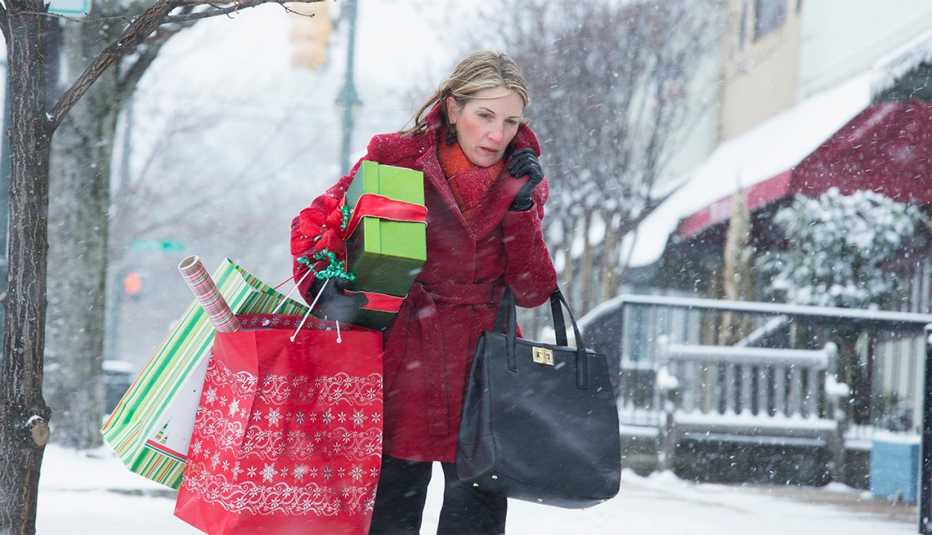Staying Fit


Whether you're looking forward to the holidays or secretly dreading them, chances are there's something about the run-up to the new year that leaves you feeling less than jolly — or that actively ignites anxiety and apprehension.
Maybe you don't trust yourself around the punch bowl, or your wallet is hurting. You may have had words with a family member and fear a challenge ahead at an upcoming get-together. Being alone might be getting you down.


AARP Membership— $12 for your first year when you sign up for Automatic Renewal
Get instant access to members-only products and hundreds of discounts, a free second membership, and a subscription to AARP the Magazine.
For some, their own expectations are threatening to derail the holiday spirit. “Sometimes you get wrapped up in the rigidities of tradition, and want to create the perfect holiday, finding the right present or perfect holiday card,” says Joanna Scheier, LCSW, and a family and individual therapist in Montclair, N.J. As she says, you can be overwhelmed by impossible standards, and nobody wins.
Understanding what may threaten your merriment is a good place to start. Here, five common problem areas you might already be anxious about, and expert strategies to help you avoid feeling stuffed, sick, broke, burnt out or lonely during the coming season.
If you're stressed that your heart is full, but your wallet is light..."We love to take time at the holidays to send an email reminding our clients that they are, or aren't, on track with their budget,” says Eileen O'Connor, CEO and wealth advisor at Hemington Wealth Management in Falls Church, Virginia, who notes that clients call at the holidays to ask if they can afford everything from a party to a pricey holiday dress to a manicure.
Travel, she notes, is one cost that sneaks up on older clients. Same for donations: You may be inundated with requests for charitable gifts. “Stress comes in with struggling with whether or not you can afford this thing you say you want."
In her view, “everything is a trade-off,” one that can become a lot clearer if you have a well-defined “savings target.” As in, the yearlong budget shouldn't get thrown out the window in November or December. So ask yourself: Do you know what you can afford to spend on holiday expenses? If you want to go beyond your usual monthly allotment, can you make up the difference in the coming months? How? Figuring out those bigger questions, O'Connor notes, will help you approach your holiday spending with more clarity and, hopefully, reduce the guilt and stress you might otherwise feel over each and every purchase.
If you're feeling particular pressure around giving gifts to family, friends or coworkers, O'Connor recommends first questioning where this pressure is coming from. “We make up things in our mind such as so-and-so needs a gift,” she says. Rather than give in to every gift-giving whim (from internal or outside pressure), she recommends setting guidelines for things like family giving. Her extended family, for instance, employs a no-gift rule, following the assumption that “No one needs more stuff or wants it.” Another approach is to only give gifts to children. If you're throwing a big party, consider if that can be your present to others. “It's expensive!” she says.
When considering what to give friends or coworkers, know that “data has shown that if you make someone feel appreciated, that means more than a gift itself.” If you decide you want to purchase items for everyone on the list, head to the store with a dollar limit for each gift to cut down on some budgetary anxiety.

































































More on health
8 Things to Do at 50+ to Help You Live Longer
It’s never too late to make small changes to improve your health